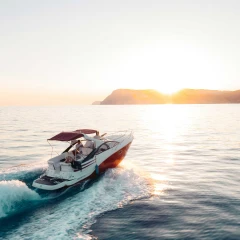













Getting PWC insurance is smart—but it doesn’t mean you’re covered for everything. Like any policy, personal watercraft insurance comes with exclusions. If you’re not aware of the gaps, you could be left high and dry when it matters most.
Here’s what PWC insurance typically does not cover—and what you can do about it.
If someone who isn’t listed on your policy takes your Jet Ski out for a spin and wrecks it, you may not be covered. Most insurers require that all regular operators be listed.
Even if the person has experience, being unlisted could void your coverage. Many common Jet Ski insurance mistakes involve unlisted operators or misunderstandings about “permissive use.” Always check the terms around “permissive use” in your policy.
PWC insurance is generally written for recreational use. If you're using your Sea-Doo in a race or performing stunts, standard coverage likely won’t apply.
Some insurers offer add-ons or special coverage for performance use, but you’ll need to request it explicitly. You can avoid confusion later by reviewing your policy before riding or making modifications.
Routine maintenance issues, engine failures, and general wear and tear are almost never covered. Insurance is designed for sudden, unexpected events—not the slow breakdown of parts.
If your WaveRunner won’t start because of a worn-out impeller, that’s on you. Understanding what PWC insurance does and doesn’t cover can help prevent surprises during claim time.
Operating your Jet Ski under the influence of alcohol or drugs is illegal—and if you're involved in an accident, your claim can be denied entirely.
Many policies have clear exclusions for any losses or injuries that occur while impaired.
Some policies restrict coverage to certain geographic areas or types of water. If your policy only covers inland lakes and you decide to take your Jet Ski out on the ocean, any incidents might not be covered.
Be sure you understand the boundaries set by your insurer. This is especially important if you plan to ride outside your usual area or during the off-season months.
Using your personal watercraft for business purposes—like renting it out or offering tours—requires commercial PWC insurance. Standard personal-use policies won’t apply in these situations.
If you're thinking about monetizing your Jet Ski, talk to your provider about a commercial upgrade.
Theft may be covered under comprehensive insurance, but if the insurer finds that your PWC was left unsecured or improperly stored, your claim might be denied.
Some carriers require specific security measures (like locks or enclosed storage) as a condition of coverage.
While exclusions are a normal part of any insurance policy, many of them can be addressed with proper planning:
Remember to always check your specific policy before heading out on the water.
